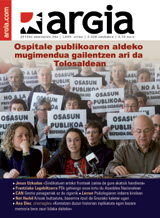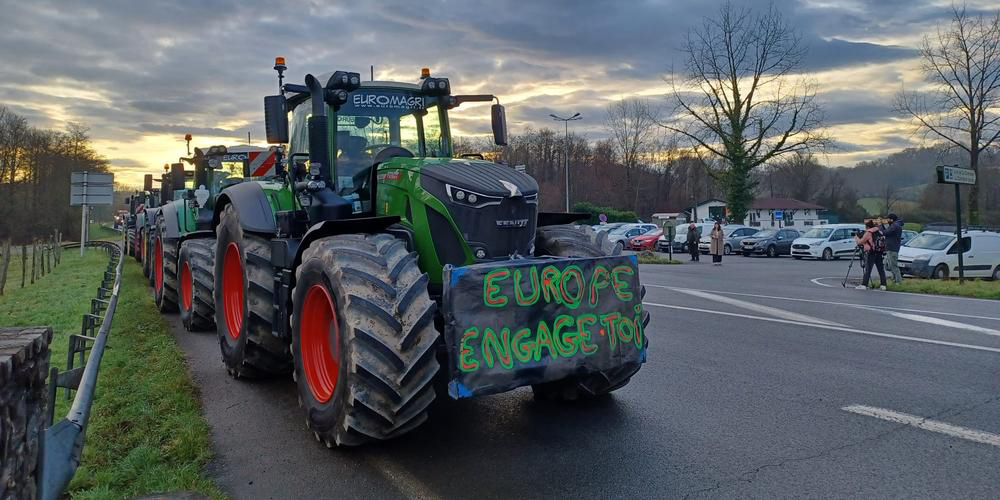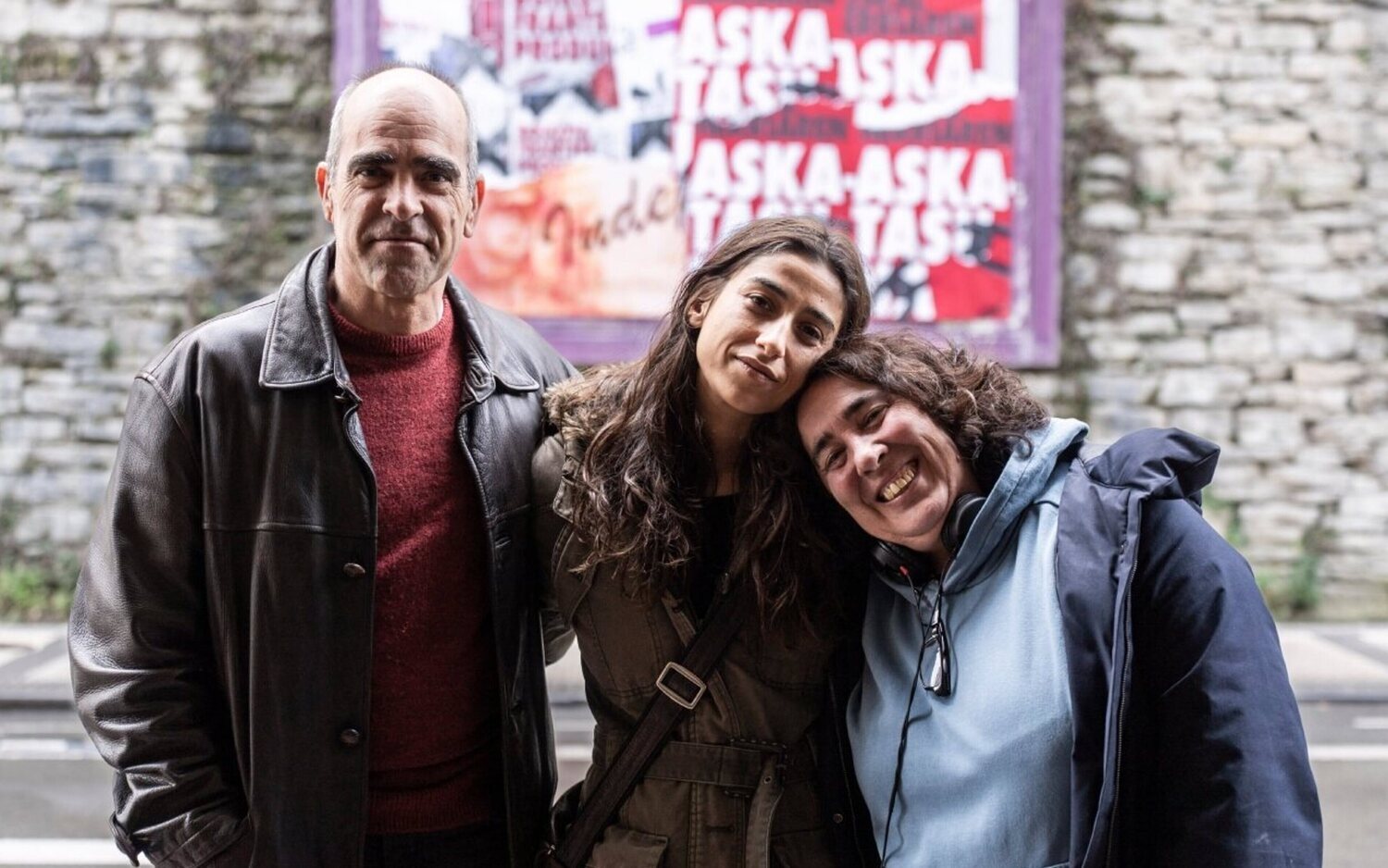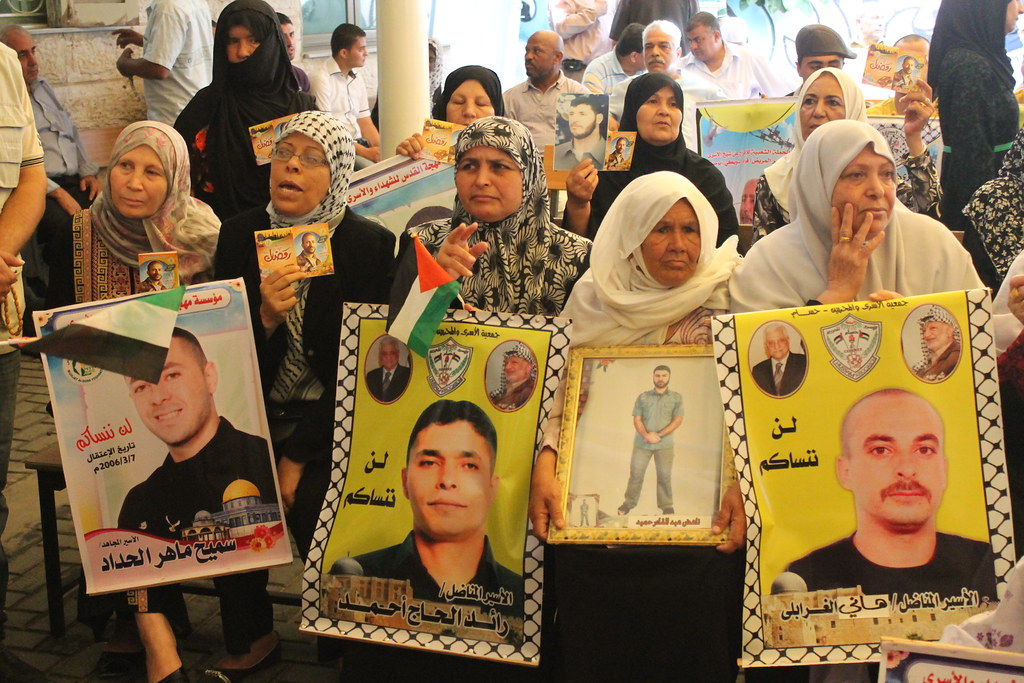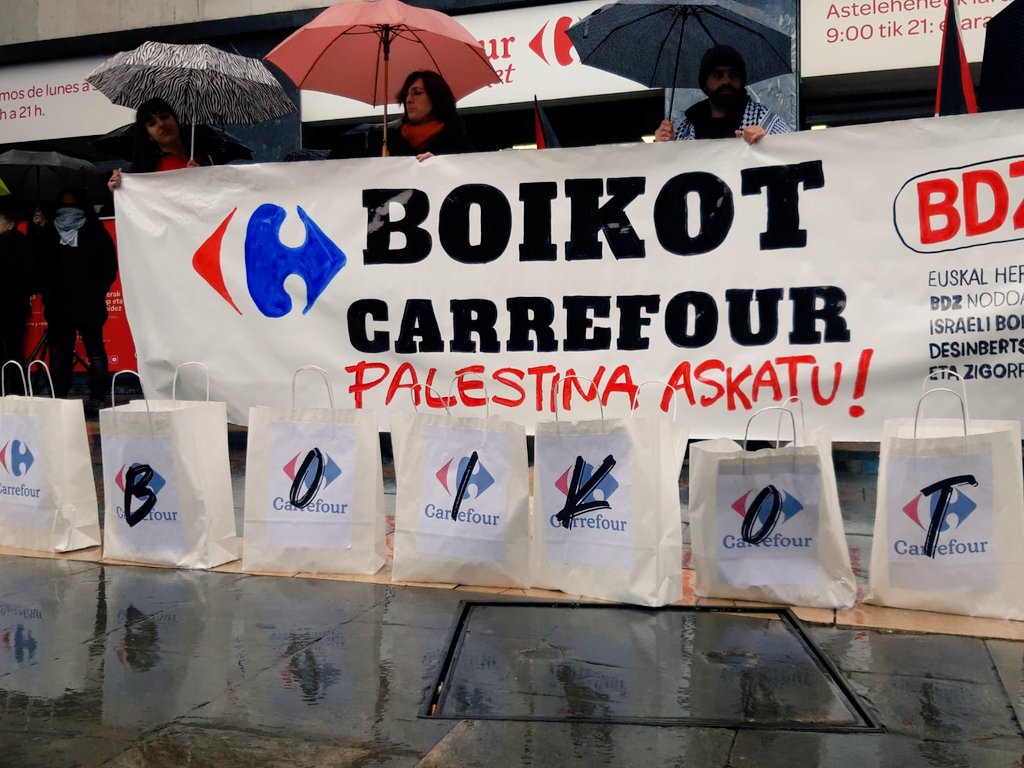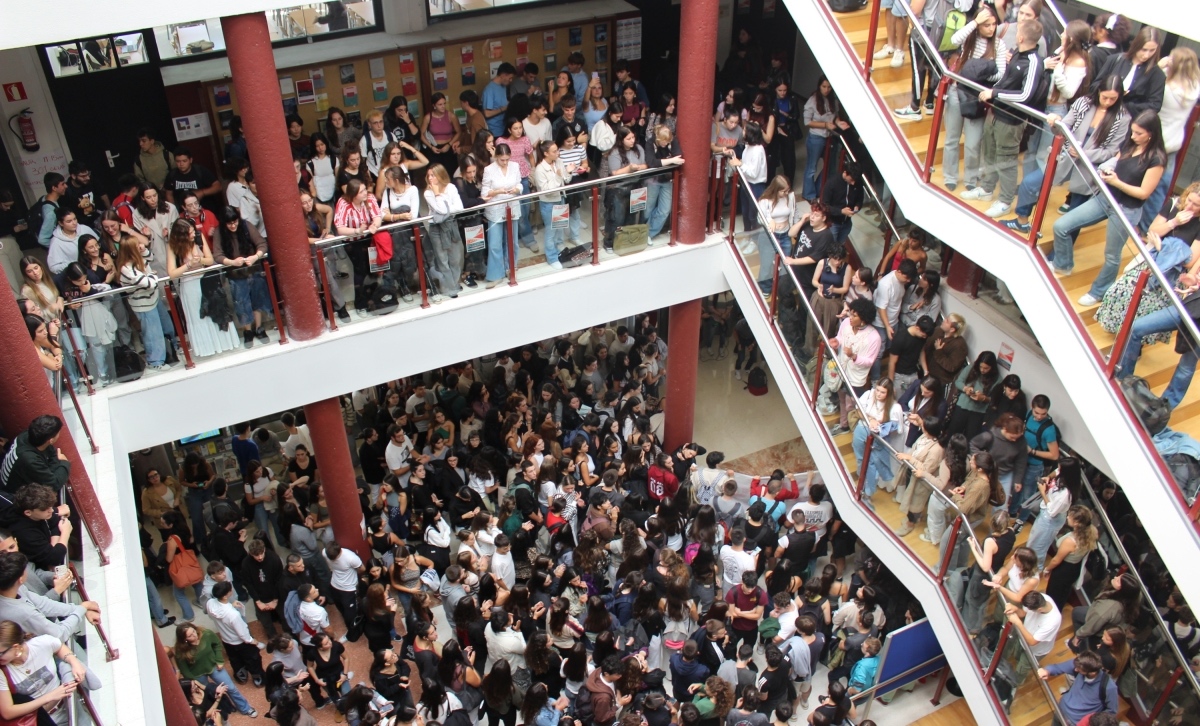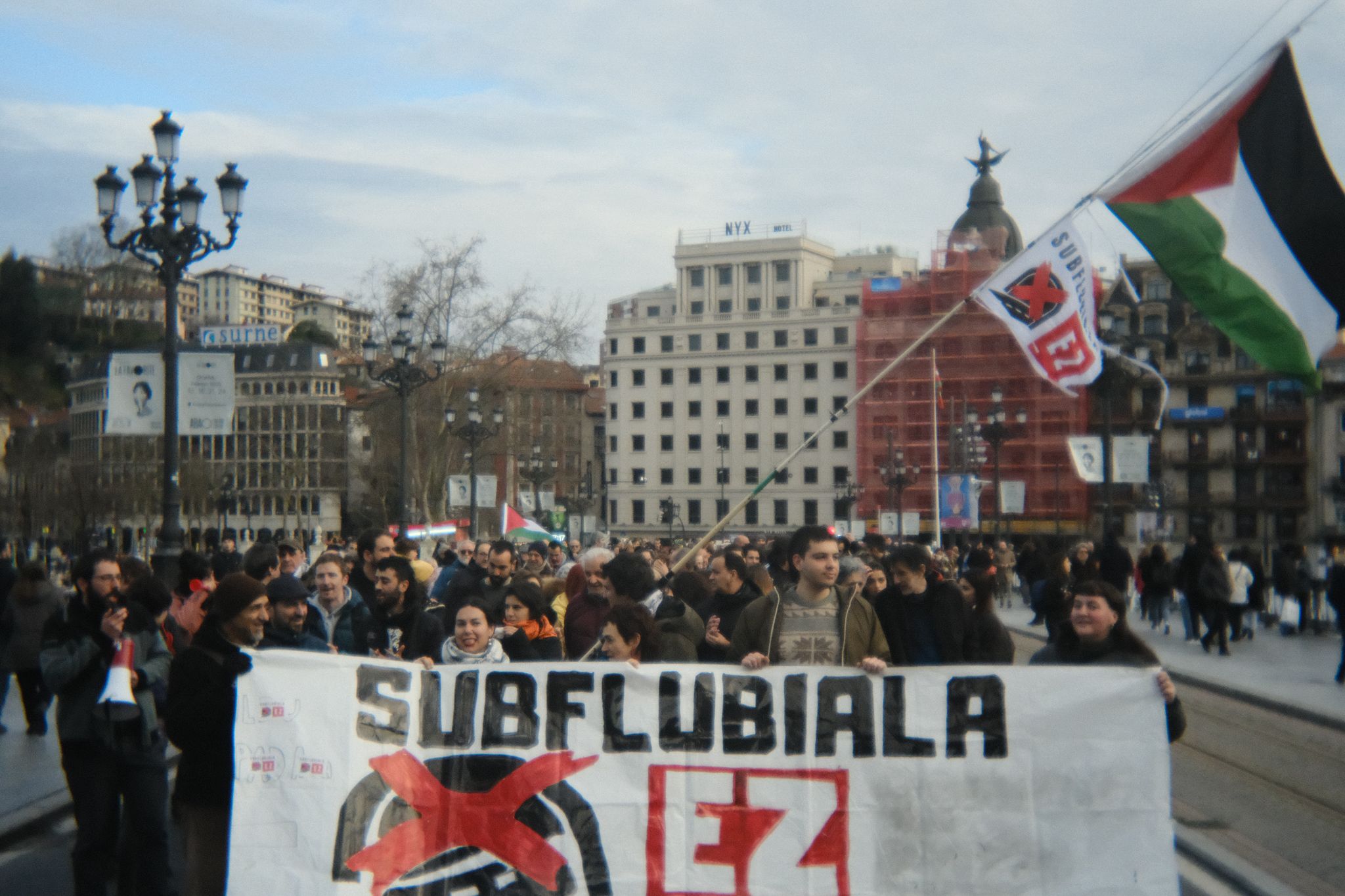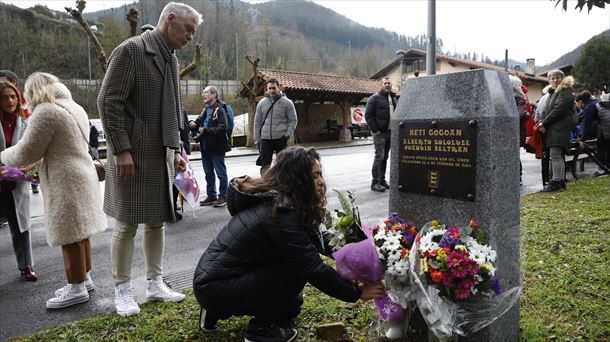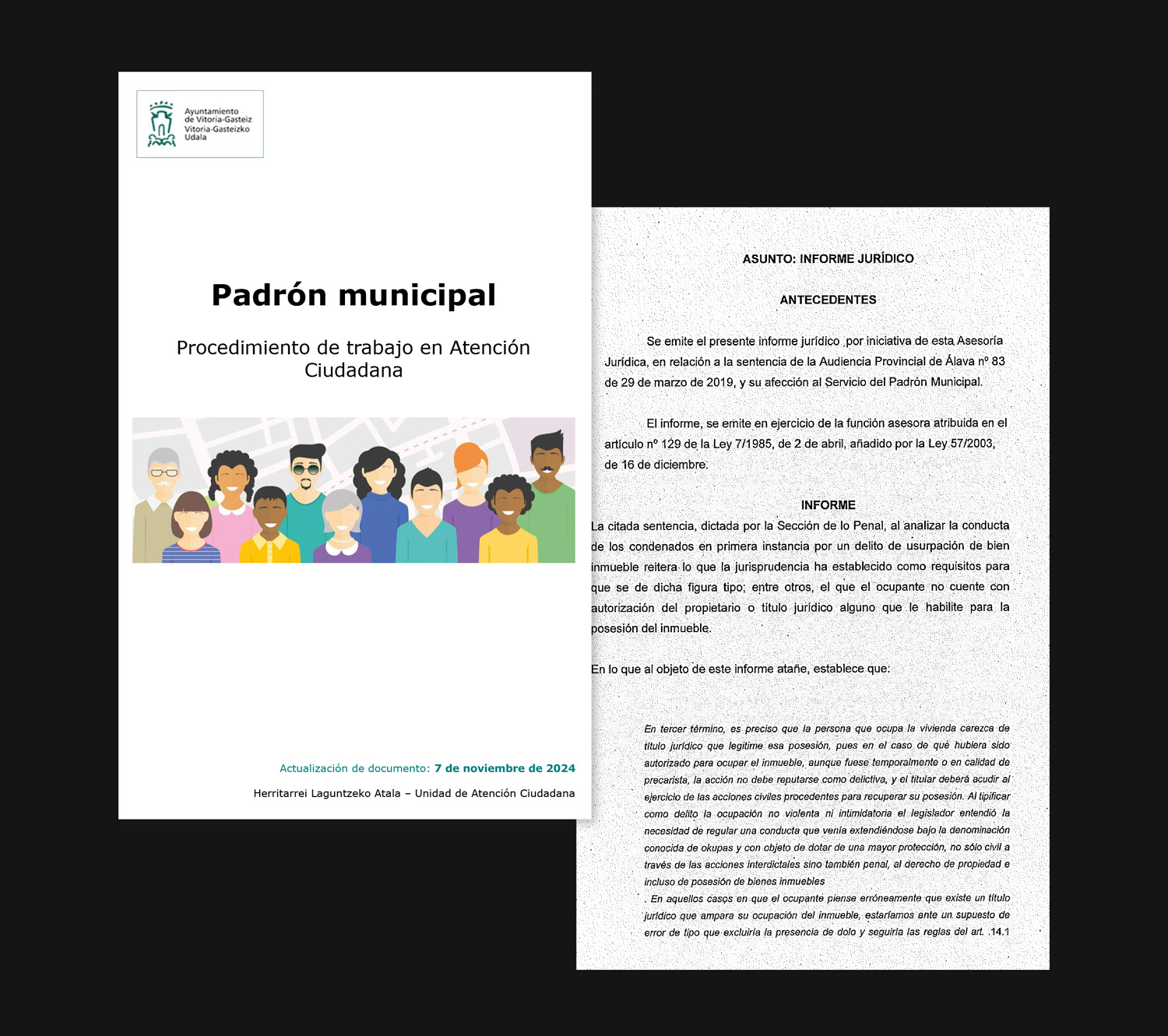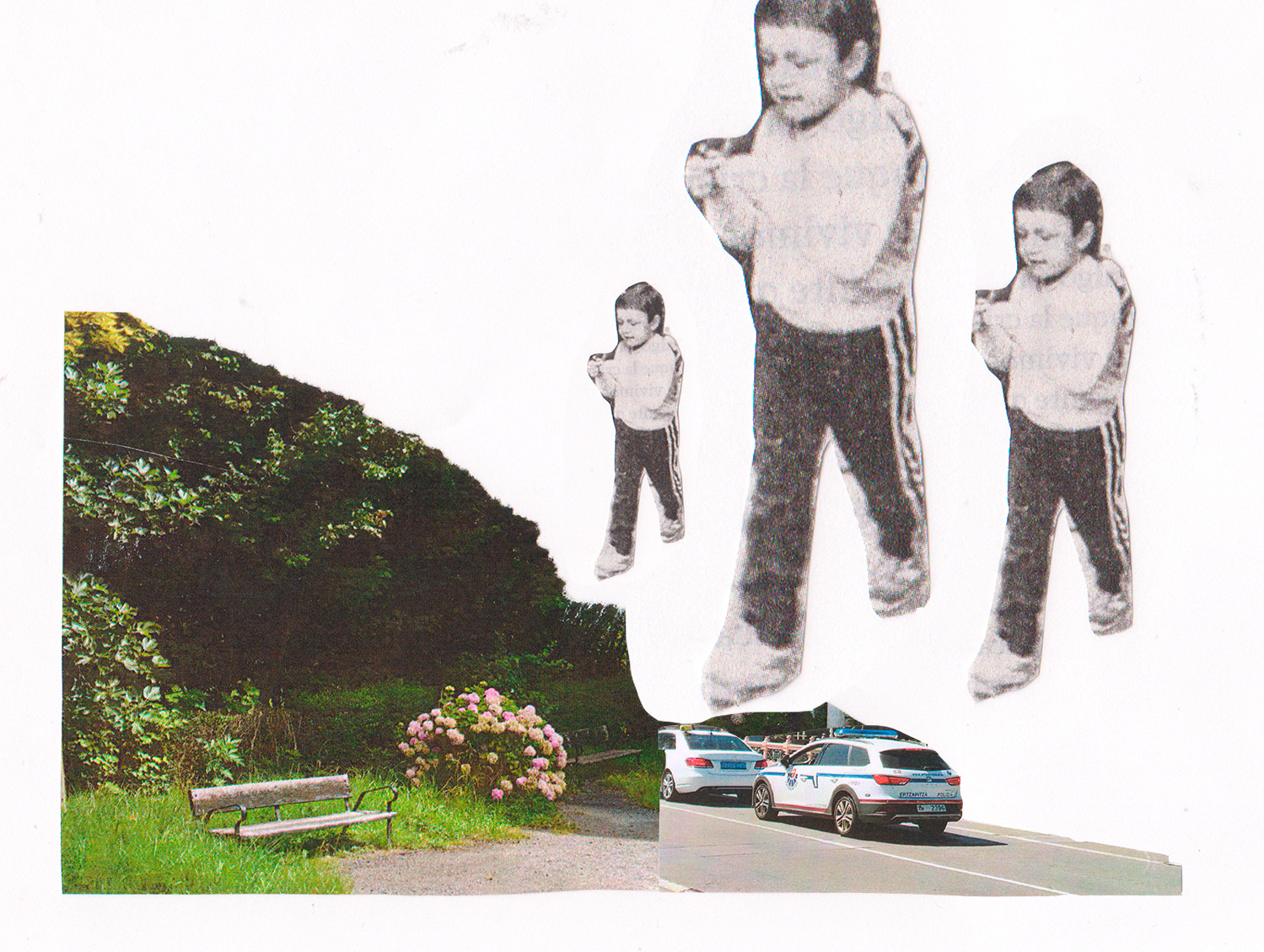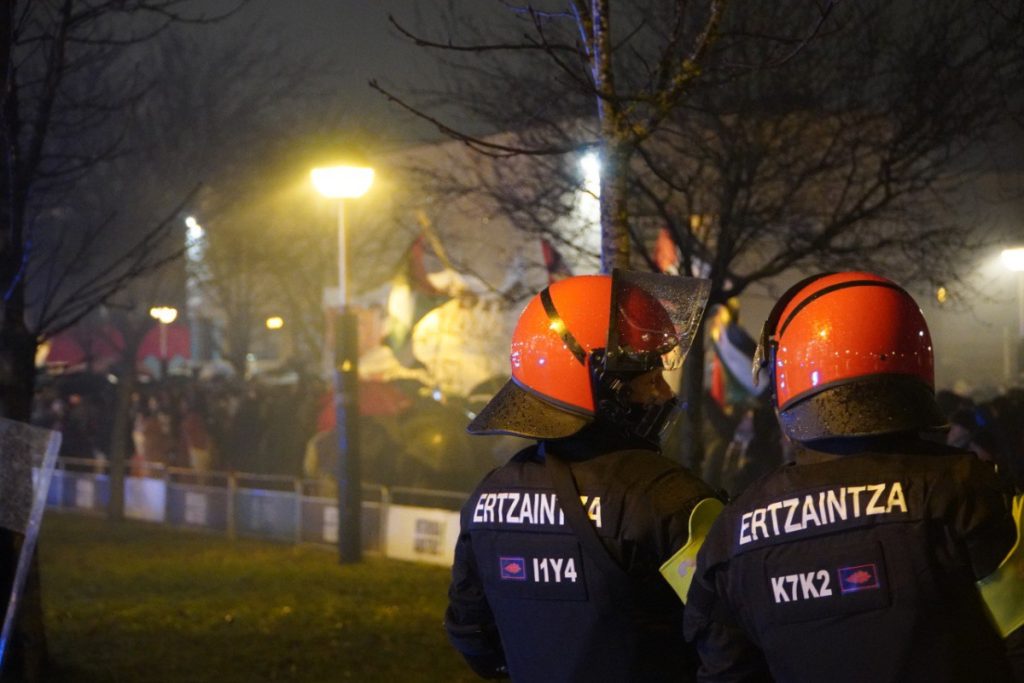"If the worker doesn't have a union as an escort, he has a party."
- Dissidence is not comfortable. There is Jesús Uzkudun, a member of the CCOO management, trabalenguas between abertzales and not abertzales, who have always worked for the worker since childhood.
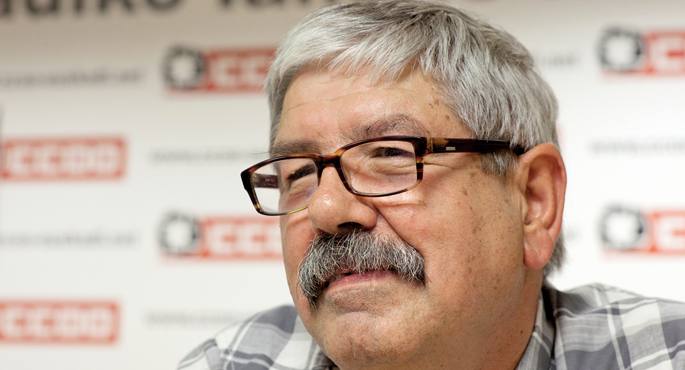
Jesús Uzkudun Illarramendi…
Manterola Garmendia! Natural from Igara, in Donostia-San Sebastián, in the Pellotegi village. My parents were from Ayala, my father Ibarrola from Laurgain, my mother Zatarain from Berriz. I grew up at home until I was 7. Then I was an assistant at Ixa Hamlet where Matia was at home until I was 14, until my family went to Hernani. I started working when I was able to walk, as usual in the farmhouse. We went to Hernani in the summer season, I was an assistant in another hamlet. The next summers worked at the factory, together with my father at the Olaran sawmill. I finished [Vocational Training Studies] and worked at the Urma de Urnieta workshop when I was 17 years old.
The time of Orbegozo?
Later. I previously worked at Gureola Scott, where I have my first experiences. The Burgos process. We young people, we stop the factory. Before military service, we went to Orbegozo, because in Gureola there were no people who could enter the organization. And to Orbegozo. I was 22 years old.
“Get into the organization,” he said.
First I was in the Christian movement, in the neighborhood, or in the labor world. From there, we immediately entered the organization, in front of ETA workers, and then we entered the VI. They said, “Do it, no one will teach you what needs to be done!” And we started, and so far, always learning. There's nothing better for that than having the windows open. Obey one and the other, try paths… There is no way down this road, and try another.
You mentioned the time of Burgos, the process.
Before that in Burgos, we were distributing propaganda, often enough in sight. People knew that. During the Burgos trial, in those days, the factory manager even told me that he was in charge of distributing ETA’s propaganda. “I don’t!” I was repairing the machine on the second floor, in the Sanitarium section. They were all women. “Blessed among all women.” As I fixed the machine, I picked up the tool and came down. After them they stopped all the machines. Two workers, they didn't want. We all ran and shut them down. We were more than two hundred workers and more than a hundred women! Days later, a colleague who worked with us was arrested. We passed fear, but we passed.
You were afraid in the time of Franco…
An idiot who says he didn't have fear. I was scared and my throat was dry several times. In 1974, after the death of Catalan Puig Antich, persecuted by the police, I had to leave with his wife. Aberri Eguna and later. I spent two years in Vitoria, underground. There I learned and demonstrated that it was possible to fight. I once told him: “If tomorrow you don’t start the demonstration, out of the organization!” and they went out and the people followed them. And to taste! The next day they stopped again. What an illusion! There, I learned how to better plan our work.
3 March 1976.
At one in the morning I was given the communiqué from the Church of San Francisco. "If you don't bring him to bed at midnight! they told me. At one in the morning, the presence of propaganda in all industrial sites was complete. Arturo del Val, Iñaki Uribarri write something, but his whole story is not written. As soon as I leave, I leave. Ha, ha, ha.
So was it easy to move the worker?
We surrounded the young people in the air. It wasn't easy, though. A week after 3 March, clandestine meeting. We left the meeting at 11 p.m. With me, the lady and one from Arrasate. We looked around at the police car. “Let’s go to Bar Txoko,” my wife and I said to Arrasate. Enter the bar and the bathroom. And at the time, the police headed for the tavern. They asked everyone in the bar for documentation. I carried the casings in the air, a lot of propaganda papers, and also those of the interior conformation. If they had caught it, it would have been over! They've started asking documents, first to one, then to another -- the third, my wife, the only woman in the bar. Analysis of documentation and “De Hernani”. The ladies were afraid that she would start running. Then he said to the police: “We are spouses.” The police said: “Husband and wife?” In my documents, “Iñaki Fran…”, Biscayan. Fake paper, we couldn't give the direction. He didn't even ask. "Let the husbands leave," the police said. That's how we freed ourselves. The rest were taken by the police. The man who entered the bathroom stayed there, with the door closed. It came out of the window. Stories! Ha, ha, ha.
How many stories can't?
If we were to tell them all, the day would illuminate it. Some pretty stories. The circle of my friends is my most beautiful memory back then. Otherwise, the fear, the scarcity of money… In Vitoria-Gasteiz, in two years we met six homes. Six homes! I knew better all the neighborhoods of Vitoria-Gasteiz than those there.
Were you considered a trade unionist?
He was a revolutionary worker.
And today?
Also.
Your title is “Jesus Uzkudun, trade unionist”.
Because I've always been there. When it was time to come from Vitoria to San Sebastian, they proposed to stay there, in Álava. I'm sure I would have a political career ...
Political career, would that be good?
The policy is not bad.
I mean politicians...
There's everything. I know him of everything. In addition, I have always said that trade unionism must be spread by policy, and vice versa, by trade union policy.
How do you do that?
We would do this by contacting the workers’ representatives, bringing discussions between politicians to the working class.
Is this done somewhere? Who would lead the debate?
It's done in several places. Greece is showing the way. Or Egypt. Or Latin America… The members of the union have told me, in Sweden, or in Finland, the minister in the workers’ assembly, giving explanations, and in wood! Here we are very far away.
Has the social movement taken up space?
They're two complementary worlds. The former union thought it was what it was, but it is difficult for the union to respond at all levels. The workers organize themselves in the union to solve their problems. Above all, labour problems. The syndicalist does not have to be just a syndicalist, he has to have many other cards and compromises. Social movements and others.
As you said, the trade union is in a position to solve the worker's employment problems. A labor agreement, working conditions, health…
The union and the political party have too often been mixed up in this people. However, work is being done on different levels. The trade union has to solve the problems of the workers. Politicians have an easy task: to discuss this and that. The trade union needs more and more members, otherwise they will not respect it. If the worker does not have a bodyguard, he has a party.
Does the young man believe in the union?
Yes and no. Values are changing, the hope of changing the future has been largely lost. That belief has been lost, it has to be recovered. In the present situation it is necessary to recover those values and I believe that is what we have to work on.
What does it mean to be a trade unionist at CCOO, at the staff committees?
Having good ears, good noses, collaborating with the one who has a different political mindset to detect the problem and give an adequate response. In addition, we have to be bloody, to deal with injustices, and everyone has to manage their forces well, not what we were doing in youth, eup!, and move forward.
What is being a CCOO trade unionist in the Basque Country?
More complicated! Some tell me I'm a must, I say "adjoining," because I'm from one side to the other. I think the biggest mistake is that there are fronts between unions. A disaster. I was ETA VI.ekoa, troskist, especially reading one thing. Internationalism, yes, but more than that, the common front for workers, the III. Fourth International Congress. Here it is, you have to play around!” was for me. You can't go in this country against reforms or a policy like this, saying, "No, I'm not going with you." That's theater, not wanting to respond to problems. This was clearly seen in the last strike. The fact that we are all together, united or united, at least together, brings hope and confidence. If that doesn't exist, boss! Bridging work is essential to foster collaboration. If there is no cooperation, the social and national problem will be resolved. The solution to the national problem also requires a cross-cutting agreement.
What do the leaders of the Basque trade unions say about this?
Even now, a debate in Hamaika telebista: LAB, STEE-EILAS and us. I was asked to have another debate with ALS. “The prize, if you get it,” I told them. If you don't want to argue, you have something to hide. That's right. ELA does not want to discuss with us. Another case related to my area. I remember ten, fifteen years ago, when the Prevention Act came out, I told a friend of ESK: “You, as soon as the accident happened, a unitary response,” and we reached an agreement. We went to ELA and no! We are not going to participate in it. Whoever you want, come with us.” What did you think, that we would be standing? What did it mean? Shame: kill a worker and protest, two banners! If at that level LAB, ELA, or God bless, says we're sold, lie, they don't have credibility. There's the proof, our daily work and our action.
Work and action for the worker.
That is where I enjoy: cancer, deafness, asthma… Health has been my union action. In 1982, the union named me the head of Occupational Health in Gipuzkoa, and since then, it has rained. At that time, in Orbegozo, we had at least one death a year. The invalids, a machine. We did the revolution. We moved from the Health and Safety Committee to the one of five workers to the thirty. What a revolution! It was a decisive step towards minimizing accidents at work. We didn't look very much at the occupational disease, we learned little by little as well. I'm told I was crazy about occupational health, but I think I've given another touch to unionism. Asbestos, silicosis, deafness… These diseases do not appear immediately. Currently, the Basque Country is at the head of the state in the case of cancers and silicosis. Known cases, declared. It takes an old dog to detect them and take steps to recognize diseases. The lawyer? They are good for the court, nothing but that! The sick worker needs a union behind him. Mutual societies, social security... will oppose it. If I had not analysed thousands and thousands of cases, we would not be in the current situation. The banners and protests of the trade unions are necessary, but the important thing is to manage the case of each worker.
Even more so in times of crisis.
The first thing is to maintain the strength of the workers. And think well how to respond to the cutbacks. We have to fight. Many say: “Well, another strike.” Yeah, what about the next three days? We have to measure things well and the worker knows what a strike costs in his pocket. They are not nonsense!
Jesus Uzkudun (Donostia, 1949) Euskadiko CCOO sindikatuko kidea 1969ko klandestinitatetik hona. 1982an ardura karguak hasi zen hartzen sindikatuan, eta 1996tik Euskadiko exekutibakoa da. Laneko Osasuna eta Ingurunea izan du ardura eta hortxe egin du borrokarik handiena, amiantoa, minbizia, silikosia, asma, gorreria eta bestelako gaixotasunak azalera ekarriz. Europako Agentziaren saria jaso zuen 2005ean, laneko zarataren kontrako kanpainaren barruan, gorreria duten langileen alde egindako lanagatik: 6.000 kasu baino gehiago aztertu zituen. Askotan ageri izan da Egunkaria, 18/98, Udalbiltza edo Adierazi EH kasuetan inputatuen aldeko ekitaldietan. CCOO sindikatuko buruzagietan beteranoetakoa, gutxik egin liezaioke kontra Jesus Uzkuduni.
“Askorekin hitz egiten dut euskaraz CCOOn. Unai Sordo, gure idazkaria, euskaldun berria da, adibidez. Baditugu, bai, euskaldunak. Esate baterako, euskara plana abiarazi nuen CCOOn, gainerako sindikatuetan inork baino lehen. Ibarretxeren azken agintaldian, Euskararen Aholku Batzordeko kide izan nintzen”.
Sometimes I don't know if it's too much. That we're eating a pipe, that we're talking about anything else, that we're bringing it up. We like to speak aloud, to leave almost no pause, to cover the voices, to throw a bigger one. Talk about each one of them, each one of them, what we... [+]









